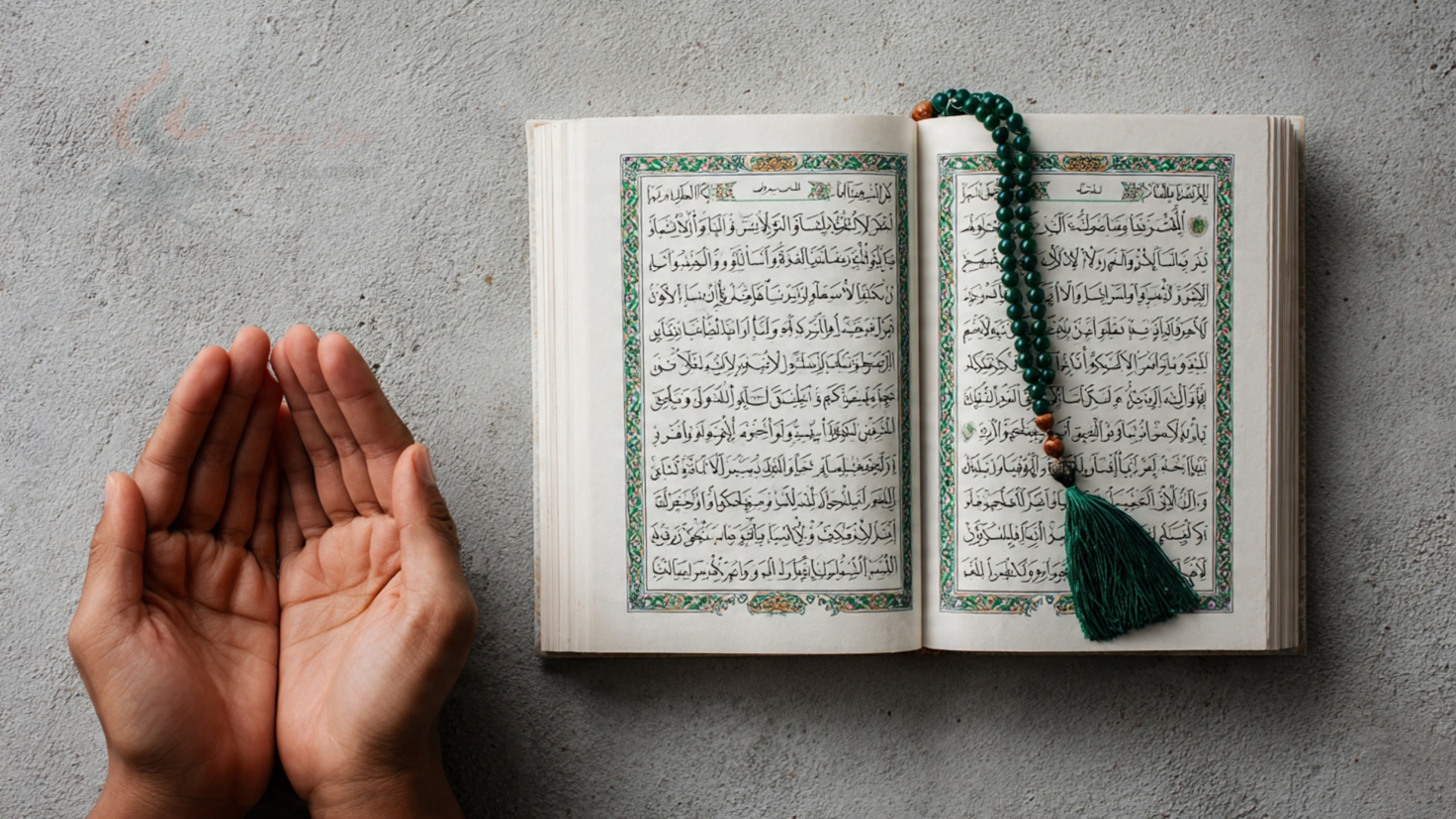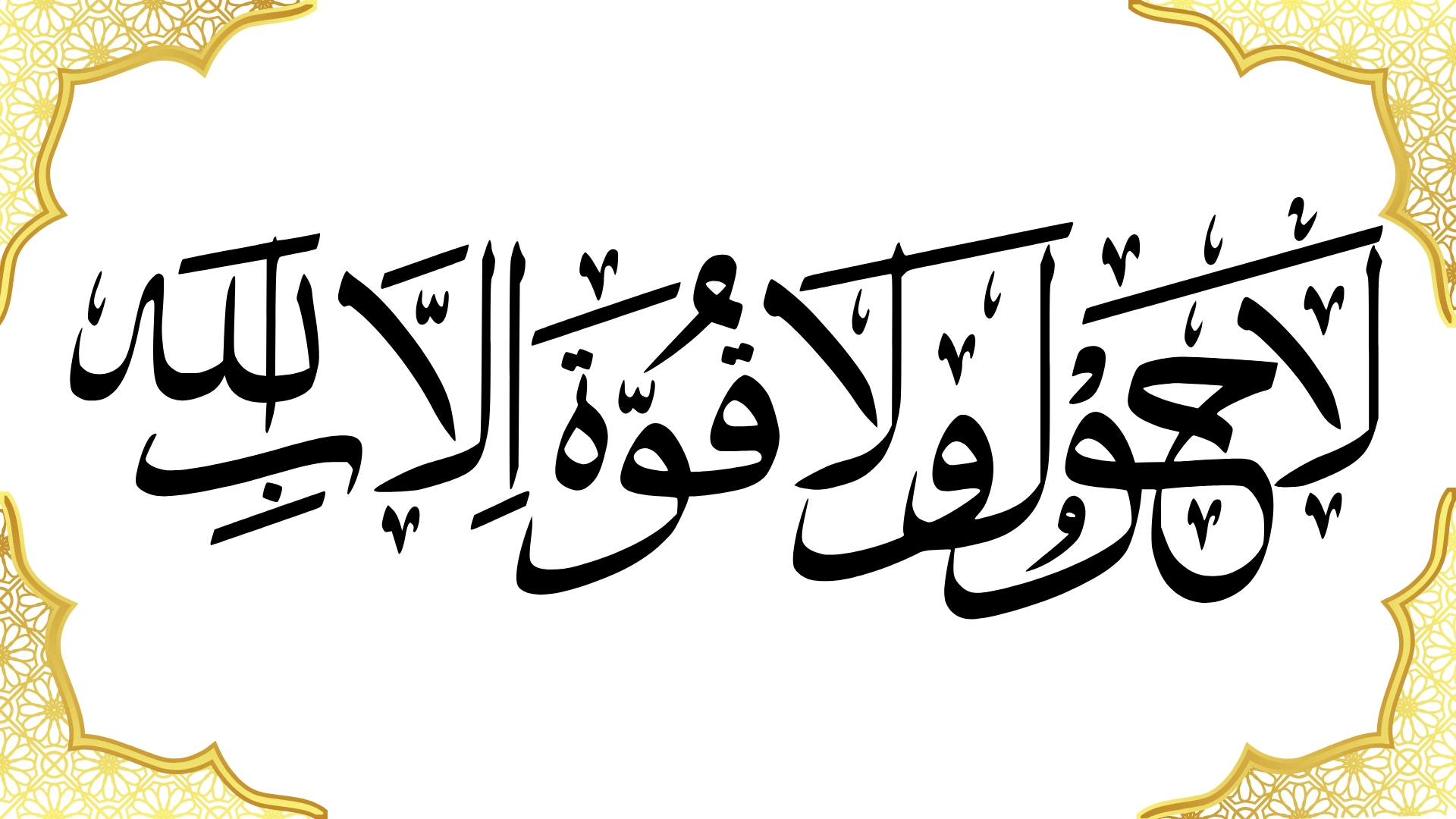Surah Abasa, the 80th chapter of the Holy Qur’an, is an illuminating discourse containing profound lessons on character, humility, and prioritization. Revealed in Makkah, this powerful chapter comprises 42 verses and carries a compelling narrative that resonates deeply within a moral framework. The surah was revealed during a pivotal moment when the Prophet Muhammad (PBUH) was engaged in dialogue with important leaders of the Quraysh. Its message offers timeless teachings that remain relevant, urging self-reflection and ethical conduct.
This unique tone immediately captures the reader’s attention, offering a glimpse into the nuanced emotional and spiritual education that even the Prophet received. The lessons within these verses demand careful contemplation to fully unveil their wisdom and application.
The Context of Revelation
The revelation of Surah Abasa is rooted in an incident involving the Prophet, high-ranking chiefs of the Quraysh, and a blind man named Abdullah Ibn Umm Maktum. The Prophet was engaged in an intense discussion with the Quraysh leaders, hoping to guide them toward Islam. The leaders’ conversion, in the Prophet’s view, could potentially influence others to accept the faith. However, during this critical moment, Abdullah Ibn Umm Maktum, a devout believer, approached seeking guidance.
The Prophet’s reaction was not one of rejection but irritation at the disruption. He frowned and momentarily turned away from Abdullah. Allah revealed this surah immediately after the incident as a gentle yet profound corrective instruction to the Prophet.
This occasion underscores the equality of all individuals in the eyes of God, irrespective of their social status. It breaks the conventional barrier of hierarchy, casting light on the eternal value of sincerity over superficial influence.

Surah Abasa Transliteration, English & urdu Translation
بِسۡمِ ٱللَّهِ ٱلرَّحۡمَٰنِ ٱلرَّحِيمِ
Bismillah hir rahman nir raheem
اللہ کے نام سے شروع جو نہایت مہربان ، رحمت والاہے ۔
In the name of Allah, the Entirely Merciful, the Especially Merciful.
عَبَسَ وَتَوَلَّىٰٓ
Abasa wa tawallaa
تیوری چڑھائی اور منہ پھیرا۔
The Prophet frowned and turned away
أَن جَآءَهُ ٱلۡأَعۡمَىٰ
An jaa-ahul ‘a-maa
اس بات پر کہ ان کے پاس نابینا حاضر ہوا۔
Because there came to him the blind man, [interrupting].
وَمَا يُدۡرِيكَ لَعَلَّهُۥ يَزَّكَّىٰٓ
Wa maa yudreeka la’allahu yaz zakkaa
اور تمہیں کیا معلوم شاید وہ پاکیزہ ہوجائے۔
But what would make you perceive, [O Muhammad], that perhaps he might be purified
أَوۡ يَذَّكَّرُ فَتَنفَعَهُ ٱلذِّكۡرَىٰٓ
Aw yazzakkaru fatanfa ‘ahuz zikraa
یا نصیحت حاصل کرے تو نصیحت اسے فائدہ دے۔
Or be reminded and the remembrance would benefit him?
أَمَّا مَنِ ٱسۡتَغۡنَىٰ
Amma manis taghnaa
بہرحال وہ شخص جو بے پروا بنا۔
As for he who thinks himself without need,
فَأَنتَ لَهُۥ تَصَدَّىٰ
Fa-anta lahu tasaddaa
توتم اس کے پیچھے پڑتے ہو۔
To him you give attention.
وَمَا عَلَيۡكَ أَلَّا يَزَّكَّىٰ
Wa ma ‘alaika allaa yaz zakka
اور تم پر اس بات کا کوئی الزام نہیں کہ وہ (کافر) پاکیزہ نہ ہو۔
And not upon you [is any blame] if he will not be purified.
وَأَمَّا مَن جَآءَكَ يَسۡعَىٰ
Wa amma man jaa-aka yas’a
اوررہا وہ جو تمہارے حضور دوڑتا ہوا آیا۔
But as for he who came to you striving [for knowledge]
وَهُوَ يَخۡشَىٰ
Wahuwa yakhshaa,
اور وہ ڈررہا ہے ۔
While he fears [Allah],
فَأَنتَ عَنۡهُ تَلَهَّىٰ
Fa-anta ‘anhu talah haa
تو تم اسے چھوڑ کر (دوسری طرف) مشغول ہوتے ہو۔
From him you are distracted.
كَلَّآ إِنَّهَا تَذۡكِرَةٞ
Kalla innaha tazkirah
ایسے نہیں ، بیشک یہ باتیں نصیحت ہیں ۔
No! Indeed, these verses are a reminder;
فَمَن شَآءَ ذَكَرَهُۥ
Faman shaa a zakarah
تو جو چاہے اسے یا د کرے۔
So whoever wills may remember it.
فِي صُحُفٖ مُّكَرَّمَةٖ
Fi suhufim mukar rama,
ان عزت والے صحیفوں میں ۔
[It is recorded] in honored sheets,
مَّرۡفُوعَةٖ مُّطَهَّرَةِۭ
Marfoo’atim mutah hara,
جو بلندی والے پاکی والے ہیں ۔
Exalted and purified,
بِأَيۡدِي سَفَرَةٖ
Bi’aidee safara
ان لکھنے والوں کے ہاتھوں سے (لکھے ہوئے)۔
[Carried] by the hands of messenger-angels,
كِرَامِۭ بَرَرَةٖ
Kiraamim bararah
جو معزز نیکی والے ہیں ۔
Noble and dutiful.
قُتِلَ ٱلۡإِنسَٰنُ مَآ أَكۡفَرَهُۥ
Qutilal-insanu maa akfarah
آدمی مارا جائے ، کتنا ناشکرا ہے وہ۔
Cursed is man; how disbelieving is he.
مِنۡ أَيِّ شَيۡءٍ خَلَقَهُۥ
Min aiyyi shai-in Khalaq
اللہ نے اسے کس چیز سے پیدا کیا ہے؟
From what substance did He create him?
مِن نُّطۡفَةٍ خَلَقَهُۥ فَقَدَّرَهُۥ
Min nutfatin khalaqahoo faqaddarah
ایک بوند سے اسے پیدا فرمایا، پھر اسے طرح طرح کی حالتوں میں رکھا۔
From a sperm-drop He created him and destined for him;
ثُمَّ ٱلسَّبِيلَ يَسَّرَهُۥ
Thummas sabeela yas-sarah
پھر راستہ آسان کردیا اسے۔
Then He eased the way for him;
ثُمَّ أَمَاتَهُۥ فَأَقۡبَرَهُۥ
Thumma amatahu fa-aqbarah
پھر اسے موت دی پھر اسے قبر میں رکھوایا۔
Then He causes his death and provides a grave for him.
ثُمَّ إِذَا شَآءَ أَنشَرَهُۥ
Thumma iza shaa-a ansharah
پھر جب چاہے گا اسے باہر نکالے گا۔
Then when He wills, He will resurrect him.
كَلَّا لَمَّا يَقۡضِ مَآ أَمَرَهُۥ
Kalla lamma yaqdi maa amarah
یقینا اس نے اب تک پورا نہ کیا جو اللہ نے اسے حکم دیا تھا ۔
No! Man has not yet accomplished what He commanded him.
فَلۡيَنظُرِ ٱلۡإِنسَٰنُ إِلَىٰ طَعَامِهِۦٓ
Falyanzuril insanu ilaa ta-amih
تو آدمی کو چاہیے اپنے کھانوں کو دیکھے۔
Then let mankind look at his food –
أَنَّا صَبَبۡنَا ٱلۡمَآءَ صَبّٗا
Anna sabab nalmaa-a sabba
کہ ہم نے اچھی طرح پانی ڈالا۔
How We poured down water in torrents,
ثُمَّ شَقَقۡنَا ٱلۡأَرۡضَ شَقّٗا
Thumma sha qaqnal-arda shaqqa
پھر زمین کو خوب چیرا۔
Then We broke open the earth, splitting [it with sprouts],
فَأَنۢبَتۡنَا فِيهَا حَبّٗا
Fa ambatna feeha habba
تو اس میں اناج اُگایا ۔
And caused to grow within it grain
وَعِنَبٗا وَقَضۡبٗا
Wa ‘inabaw-wa qadba
اور انگور اور چارہ۔
And grapes and herbage
وَزَيۡتُونٗا وَنَخۡلٗا
Wa zaitoonaw wanakh la
اور زیتون اور کھجور۔’
And olive and palm trees
وَحَدَآئِقَ غُلۡبٗا
Wa hadaa-iqa ghulba
اور گھنے باغیچے۔
And gardens of dense shrubbery
وَفَٰكِهَةٗ وَأَبّٗا
Wa faki hataw-wa abba
اورپھل اور گھاس ۔
And fruit and grass –
مَّتَٰعٗا لَّكُمۡ وَلِأَنۡعَٰمِكُمۡ
Mata’al-lakum wa li-an’amikum
تمہارے فائدے کے لئے اور تمہارے چوپایوں کے لئے۔
[As] enjoyment for you and your grazing livestock.
فَإِذَا جَآءَتِ ٱلصَّآخَّةُ
Faiza jaa-atis saakhah
پھر جب وہ کان پھاڑنے والی چنگھاڑآئے گی ۔
But when there comes the Deafening Blast
يَوۡمَ يَفِرُّ ٱلۡمَرۡءُ مِنۡ أَخِيهِ
Yauma yafir-rul mar-u min akheeh
اس دن آدمی اپنے بھائی سے بھاگے گا ۔
On the Day a man will flee from his brother
وَأُمِّهِۦ وَأَبِيهِ
Wa ummihee wa abeeh
اور اپنی ماں اور اپنے باپ۔
And his mother and his father
وَصَٰحِبَتِهِۦ وَبَنِيهِ
Wa sahi batihee wa baneeh
اوراپنی بیوی اور اپنے بیٹوں سے۔
And his wife and his children,
لِكُلِّ ٱمۡرِيٕٖ مِّنۡهُمۡ يَوۡمَئِذٖ شَأۡنٞ يُغۡنِيهِ
Likul limri-im-minhum yawmaa-izin shaa nuy-yughneeh
ان میں سے ہر شخص کو اس دن ایک ایسی فکر ہوگی جو اسے (دوسروں سے) بے پروا کردے گی۔
For every man, that Day, will be a matter adequate for him.
وُجُوهٞ يَوۡمَئِذٖ مُّسۡفِرَةٞ
Wujoo huny-yauma-izim-musfira;
بہت سے چہرے اس دن روشن ہوں گے۔
[Some] faces, that Day, will be bright –
ضَاحِكَةٞ مُّسۡتَبۡشِرَةٞ
Dahi katum mustab shirah
ہنستے ہوئے خوشیاں مناتے ہوں گے۔
Laughing, rejoicing at good news.
وَوُجُوهٞ يَوۡمَئِذٍ عَلَيۡهَا غَبَرَةٞ
Wa wujoohuy yauma-izin ‘alaiha ghabar a
اور بہت سے چہروں پر اس دن گرد پڑی ہوگی۔
And [other] faces, that Day, will have upon them dust.
تَرۡهَقُهَا قَتَرَةٌ
Tarhaquha qatarah
ان پر سیاہی چڑھ رہی ہوگی ۔
Blackness will cover them.
أُوْلَـٰٓئِكَ هُمُ ٱلۡكَفَرَةُ ٱلۡفَجَرَةُ
Ulaa-ika humul-kafa ratul-fajarah
یہ لوگ وہی کافر بدکارہیں ۔
Those are the disbelievers, the wicked ones.
Themes of Surah Abasa
Surah Abasa conveys several key themes that are critical to understanding its purpose. These themes reflect the breadth of divine knowledge embedded in these verses.
The Priority of Purity of Heart over Status
Allah rebuked the Prophet’s preference for influential leaders over a sincere seeker. The chapter reminds all believers that sincerity and a desire for spiritual purification hold greater weight than wealth or social influence. Abdullah Ibn Umm Maktum’s approach, driven by humility and earnestness, became the benchmark for prioritizing attention.
This theme addresses modern society’s preoccupation with status. It teaches the importance of valuing character over materialistic attributes and fostering relationships based on authenticity.
Inclusiveness in the Message of Islam
This directive extends to all Muslims, particularly those involved in spreading the message of Islam, reminding them to be accessible to everyone, regardless of their background. The surah urges equal treatment and respect for all, advocating for equity.
The Quran as a Source of Guidance
The surah shifts focus mid-way to highlight the exalted nature of the Quran. The scripture, described as being inscribed on purified pages held in honor by noble angels, is an unmatched source of divine wisdom. Its sanctity and guidance serve as a reminder for mankind to constantly turn to it for enlightenment.
This serves as a declaration of the Quran’s centrality in guiding human action. Adhering to its teachings ensures justice, fairness, and compassion in one’s interactions and decisions.
Reflection on Human Creation
Surah Abasat emphasizes that mankind was created from a humble sperm drop, molded into perfection entirely through divine planning. This reflection humbles the arrogant and serves as a stark reminder of human limitations and dependence on Allah’s mercy.
A Glimpse into the Day of Judgment
The latter verses of the surah provide a vivid description of the Day of Judgment. They paint a poignant picture of individuals abandoning even their closest relations in pursuit of their salvation. Faces will either radiate joy or be darkened with despair.
Lessons from Surah Abasa
The surah’s themes lead to practical lessons that believers can implement in their daily lives. These pearls of wisdom directly apply to personal character, social behavior, and the understanding of justice.
Value Humility
The emphasis placed on his presence teaches us to appreciate those who approach us with honesty and a desire to grow spiritually.
Guard Against Superficial Judgments
This surah warns against the inclination to prioritize individuals based on social standing. It reminds us that divine wisdom values inner qualities, such as faith and sincerity, over materialistic advantages. Superficial judgments can lead to unfair treatment of others and diminish opportunities for meaningful exchanges.
Place Purpose Over Prestige
The Prophet’s encounter with Quraysh leaders illuminates the tension between working toward perceived strategic goals and maintaining ethical principles. The lesson here is to prioritize cultivating genuine relationships grounded in authenticity over advancing reputations or influence.
Reflect on Accountability
The verses on the Day of Judgment compel believers to evaluate their actions constantly. They encourage moral accountability, reassuring us of the fairness of divine justice. This reflection instills both hope and caution—hope for those who strive for goodness and caution for those who neglect their responsibilities.
Proclaim Equality
Surah Abasa is a powerful advocate for human equality. By centering its narrative on a blind man’s virtue and wisdom, it elevates those often overlooked by society. This promotion of equality is an embodiment of the core message of Islam.
Recognize the Source of Blessings
The reminder of human origin and the processes that produce resources, such as food, demonstrates Allah’s mercy and power. By reflecting on these blessings, we cultivate gratitude and acknowledge our dependence on the Creator.
The Quran’s Elevated Status
The Quran, as referenced in the surah, occupies a supreme position among divine scriptures. It is described as being exalted, purified, and preserved by noble angels. This sacred text not only provides guidance but also serves as a remedy for those seeking spiritual and moral elevation.
Its presence in this narrative adds weight to the lessons derived from Surah Abasa. The verses demand continual engagement with the Quran to achieve a deeper understanding of its eternal wisdom.
An Eternal Call to Compassion
Surah Abasa transcends its historical context to become an eternal call for compassion, patience, and inclusivity in interactions. The portrayal of Abdullah Ibn Umm Maktum’s experience as a blind and devoted seeker invites us to reevaluate our perspectives toward marginalized individuals. It propels believers to examine whether they consistently embody the virtues Islam commands.
A Unique Perspective on Accountability
The rebuke directed at the Prophet demonstrates the impartiality of divine guidance. This instance strengthens the case for the Quran’s authenticity, reflecting a deeply human moment in prophetic life. It exemplifies how humility and correction are integral to leadership and personal growth.
For modern readers, this chapter becomes a mirror that showcases humanity’s collective weaknesses and potential. It urges believers to shed arrogance, engage proactively in good deeds, and hold themselves accountable for their actions.
Conclusion
Surah Abasa is more than a historical episode; it is a moral compass, guiding humanity toward humility, equity, and gratitude. It dismantles societal hierarchies, aligning divine priorities with universal truths. The chapter resonates deeply because it strikes a personal chord, reminding readers of their accountability and moral obligations.
The most profound aspect of Surah Abasa is its gentle reprimand, extending to all of humanity. It teaches that no one, not even the most virtuous, remains above correction. This eternal lesson—the pursuit of humility, inclusivity, and compassion—stands as a testament to the Quran’s profound relevance across all eras and societies.




